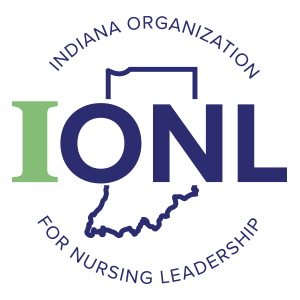Blakely embraced her because she understood how difficult it was to care for a patient in intensive care day after day. After developing relationships with patients and families and then see that person take a sudden turn for the worse and die is heartbreaking for the nurses caring for them.
Health care workers like Blakley have been putting their safety on the line to care for COVID-19 patients for months, through the initial surge and now as cases and hospitalizations are rising across Indiana.
Many have been on the front lines for more than 150 days without a break, said Jean Putnam, executive vice president and network chief nursing officer at Community Health Network. The emotional roller coaster that nurses have to face every day has had a huge impact on them. She has seen incredible compassion, sadness, joy, and frustration from their nurses daily with little complaint because it is what many of them feel called to do, she explained.
“Our nurses were in there day after day, moment after moment,” Putnam said. “That to me is what nursing is all about, being with people in their darkest hours.”
Thursday was yet another day of soaring cases of the highly contagious virus — 1,051 new cases statewide for a total of 71,015 plus six more death for a total of 2,811 Hoosiers who have died. With the rise in cases has been a rise in hospitalizations, as noted by Dr. Kristina Box, commissioner of the Indiana State Department of Health, at Wednesday’s virtual press briefing on the pandemic.
Blakley, a registered nurse for Indiana University Health, has experienced firsthand the difficulties of taking care of COVID-19 patients. The unit she works on was transformed into one that took care of COVID-19 patients. All 32 beds were filled at the peak in March, she said.
“It was pretty scary walking into work every day not knowing what kind of patient load you would have or how severe it would be that day, it took a toll on all of us. We have relationships with these patients,” Blakley said. “The losses that we had were really hard for us, just like it was for the families. We were there with them the whole time.”
The challenges of caring for COVID-19 patients begin as they don their personal protective equipment for every visit to a patient’s room. The process can take up to a minute to make sure everything is on correctly, which means that they cannot get into rooms quickly, Blakely said.
Because of the preparation time, her unit used nurses from surgery and nursing assistants to create teams that cared for four to five patients. The two nurses under the head ICU nurse assisted as “runners” to bring them things a patient may need while in an infected room to ensure the nurse did not have to gown up as frequently.
“They are wearing a mask that is really tight to your face,” Putnam said. “Then add on a hot gown and goggles and a face shield for 12 and a half hours a day, sometimes longer. That challenged some of even the most resilient professionals.”
Laurie Gerdt, cessation quality advisor and licensed mental health counselor for the Indiana Hospital Association, calls what health care professionals are facing “burnouts.” She defines nurse burnout as emotional exhaustion and sometimes depersonalization from their patients.
She went on to cite a graphic by Dr. Victor Tseng, an Atlanta pulmonary and critical care physician, that studied the COVID-19 pandemic in China and laid out four stages.
The first wave of the pandemic is immediate mortality and spike in cases; the second includes the impact of resources, or lack of them, and restrictions on urgent non-COVID-19 issues; the third is the interruption of care for those with chronic illnesses; and the fourth wave is the long-term psychological trauma and economic impact.
The fourth wave can last for years or even decades and looks at the long-term effects of mental illness, trauma, and burnout health care workers faced, according to Tseng’s study.
Dr. Anne Gilbert, an IU Health psychiatrist and virtual director of behavioral health, cited another study done in China showing 60% of health care workers there are facing high levels of anxiety and 25% are dealing with clinical depression in the aftermath of the pandemic.
Gilbert and Putnam both focused on how health care workers are facing the same personal issues of life in a pandemic as everyone else on top of their work-induced anxieties. Many have children going back to school or may have to care for elderly parents, so they worry about taking care of their families and making sure not to bring the virus home.
“They have the same stresses, but on top of that they have the additional stress of exposure to the pandemic,” Gilbert said, “Health care workers have seen more people dying of COVID-19 so they can’t help but take that home.”
IU Health and Community Health Network hospitals have received help from within their organizations and in their respective communities to support their nurses.
Both institutions were able to continue to pay their employees, even if they had to take time off due to illness. They also have received discounts from local hotels to put their employees in if they had quarantine from their families. Many restaurants were also providing meals for nurses on shift almost every day during the peak of the pandemic.
Taylor Dixon is a reporter for TheStatehouseFile.com, a news website powered by Franklin College journalism students.


